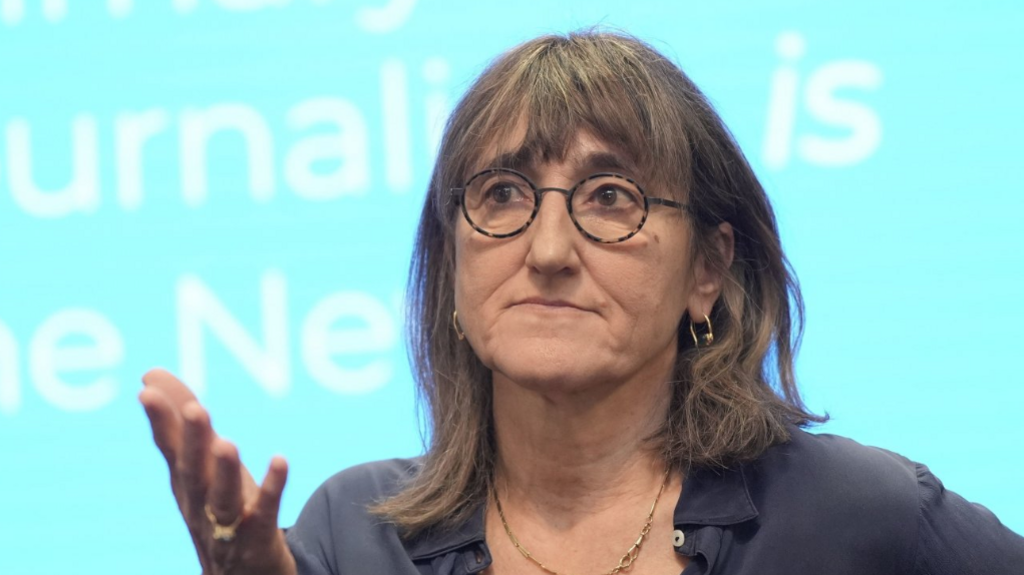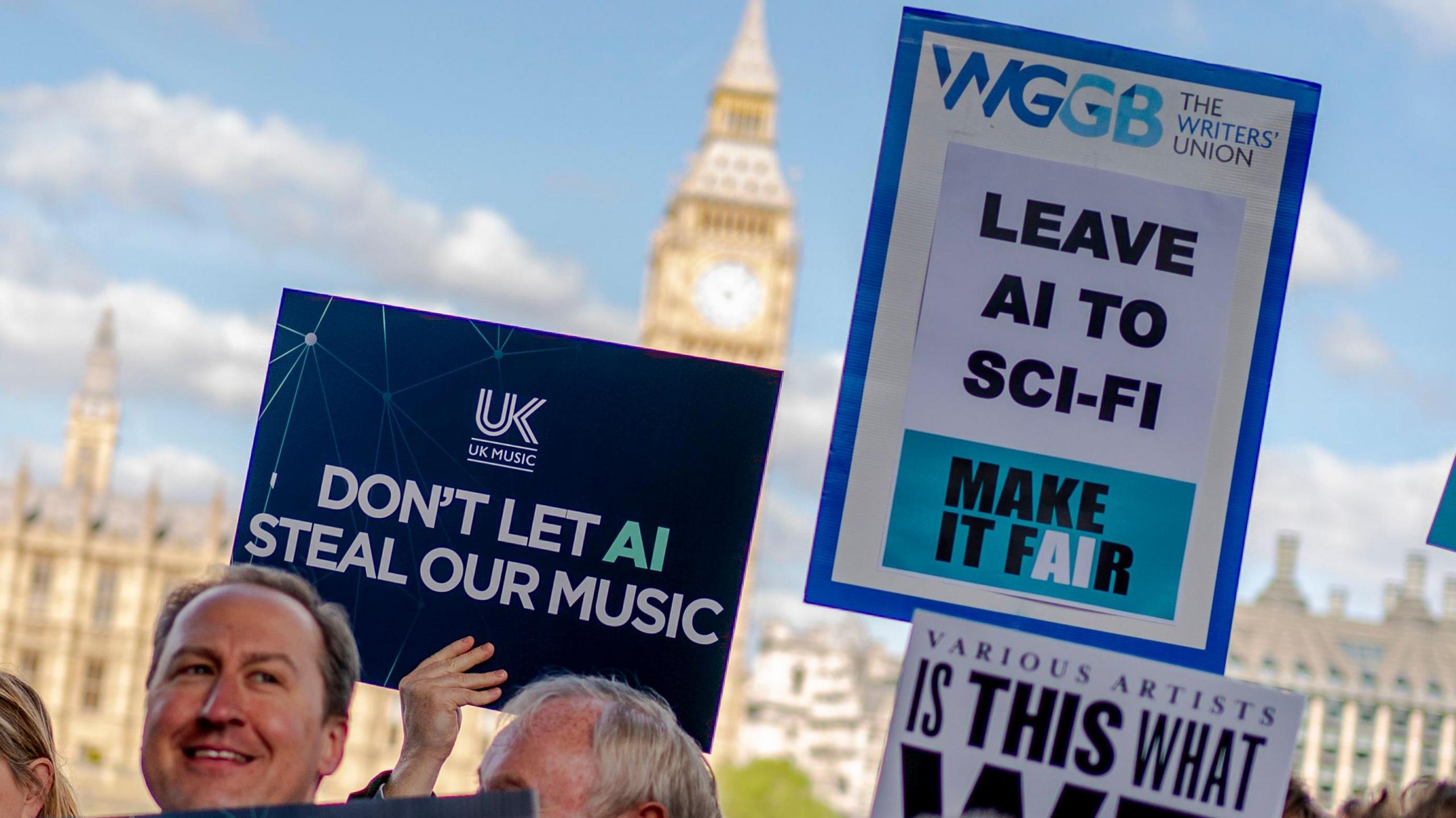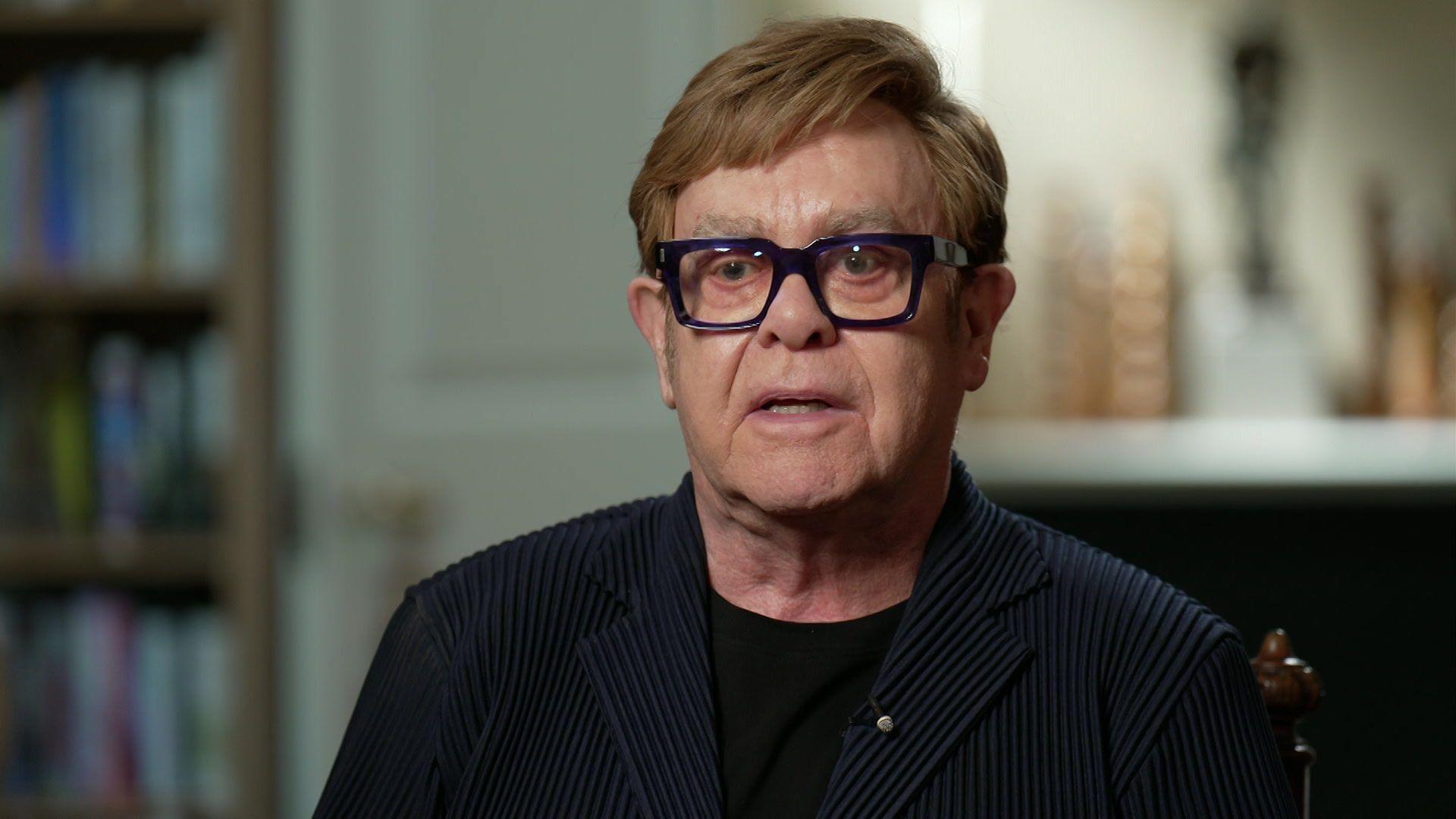Artists fear AI using their talents for free
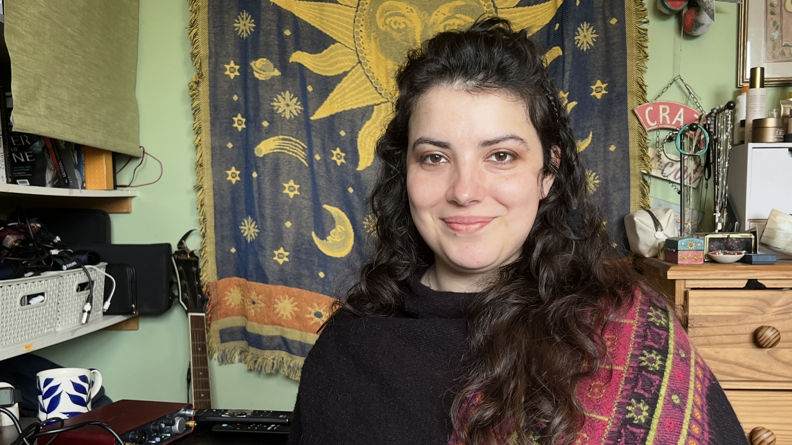
Composer and singer Lily Dooner - whose professional name is Lily Maestra - said artists were under threat from cheaper, faster material generated by AI
- Published
For young composer Lily Dooner, the human voice – with all its complexity - represents the "ultimate instrument".
But her worst fear is finding her own distinctive vocals have been stolen from her by the power of artificial intelligence (AI).
"What really scares me is the idea that one day I might be watching a film, and hear a voice created out of snippets of mine," she said.
The Leominster resident, 28, is among artists from Herefordshire who have been telling BBC Politics Midlands that AI poses a risk to their livelihoods without greater copyright protection for their work.
At present, generative AI programmes mine, or learn, from vast amounts of data including text, images, music or speech to generate new content which appears like it has been made by a human artist.
Ms Dooner said AI's vast potential – and speed – was already impacting creative industries like her own.
"AI can give you something passable in seconds… for me to give you something it's going to be hours of my time," she said.
But she said the technology's reliance on mimicry would always hold it back.
"The difference is AI can't give you something incredible. I can."
The rapid rise of AI models has already seen the government clash with rock royalty such as Sir Elton John over issues of copyright exemption.
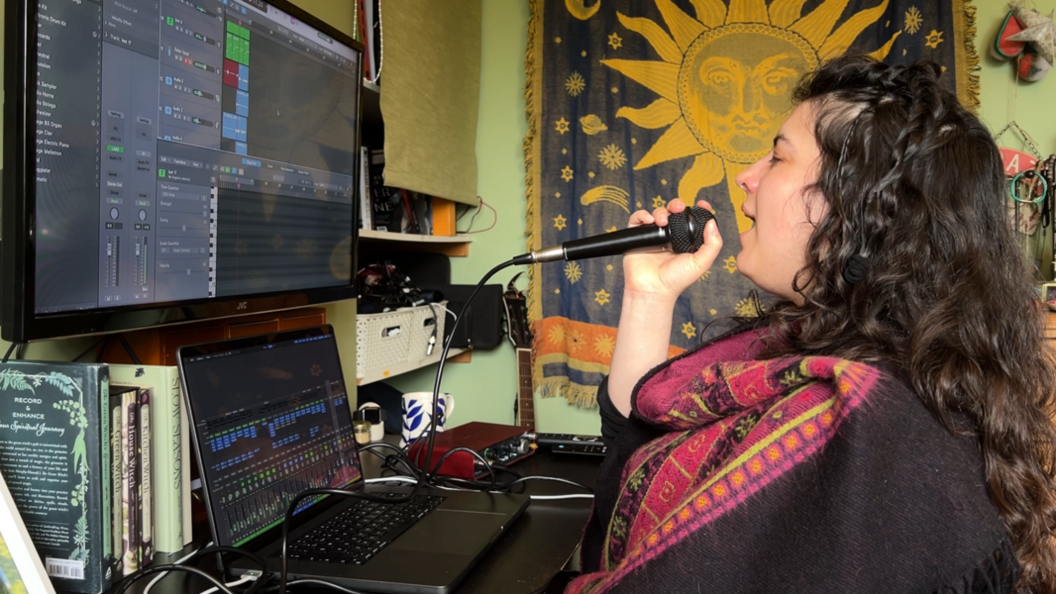
A musician since 16 years of age, Lily Dooner warned the use of AI in music production would lead to works becoming more homogenised.
In December, government consultation, external proposed AI developers should have access to all content unless its individual owners choose to opt out; a move which Sir Elton said would be "thievery on a high scale".
Despite repeated attempts by peers in the House of Lords to attach transparency requirements for AI firms to the Data (Use and Access) Bill, in June their amendments were overturned by Labour MPs.
"The Bill was never intended to alter, and won't alter, copyright law," a spokesperson for the Department for Science, Innovation and Technology said.
"We are continuing to consider the 11,500 responses we received to our separate consultation and next steps will be set out in due course."
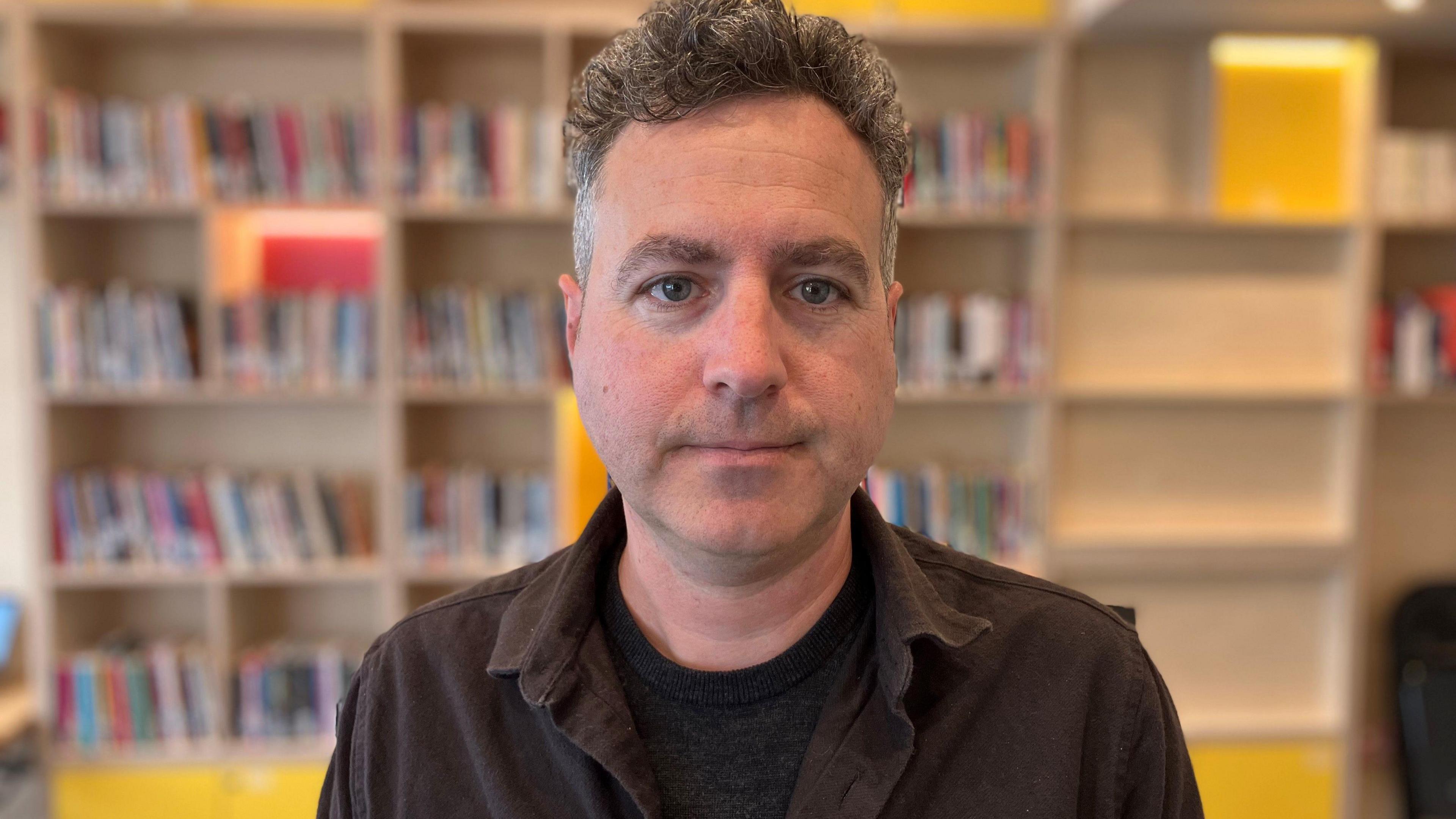
Actor and artistic director Tim Evans used generative AI in theatre production
Tim Evans, artistic director and CEO of Powerhouse, a Herefordshire-based theatre organisation, said: "The genie is out of the bottle - these models cannot be built and will not be built without hoovering up this vast amount of data."
A user of AI in theatre production, he himself is no enemy of the technology.
After his brother Alex died in 2017, he used the software to recreate his voice for the play Mappa Mundi, external, training the model with dozens of recordings.
"We'd batted back and forth ideas about creating a two-man show… the idea was forever lost [when Alex died]. That was until, of course, the explosion of AI technology."
But Mr Evans said artists needed to be compensated for their private intellectual property being used.
"Used in the right way, [AI models] can be used as really powerful, democratizing tools for creativity," he said.
"As yet the compensation question is being left unanswered."
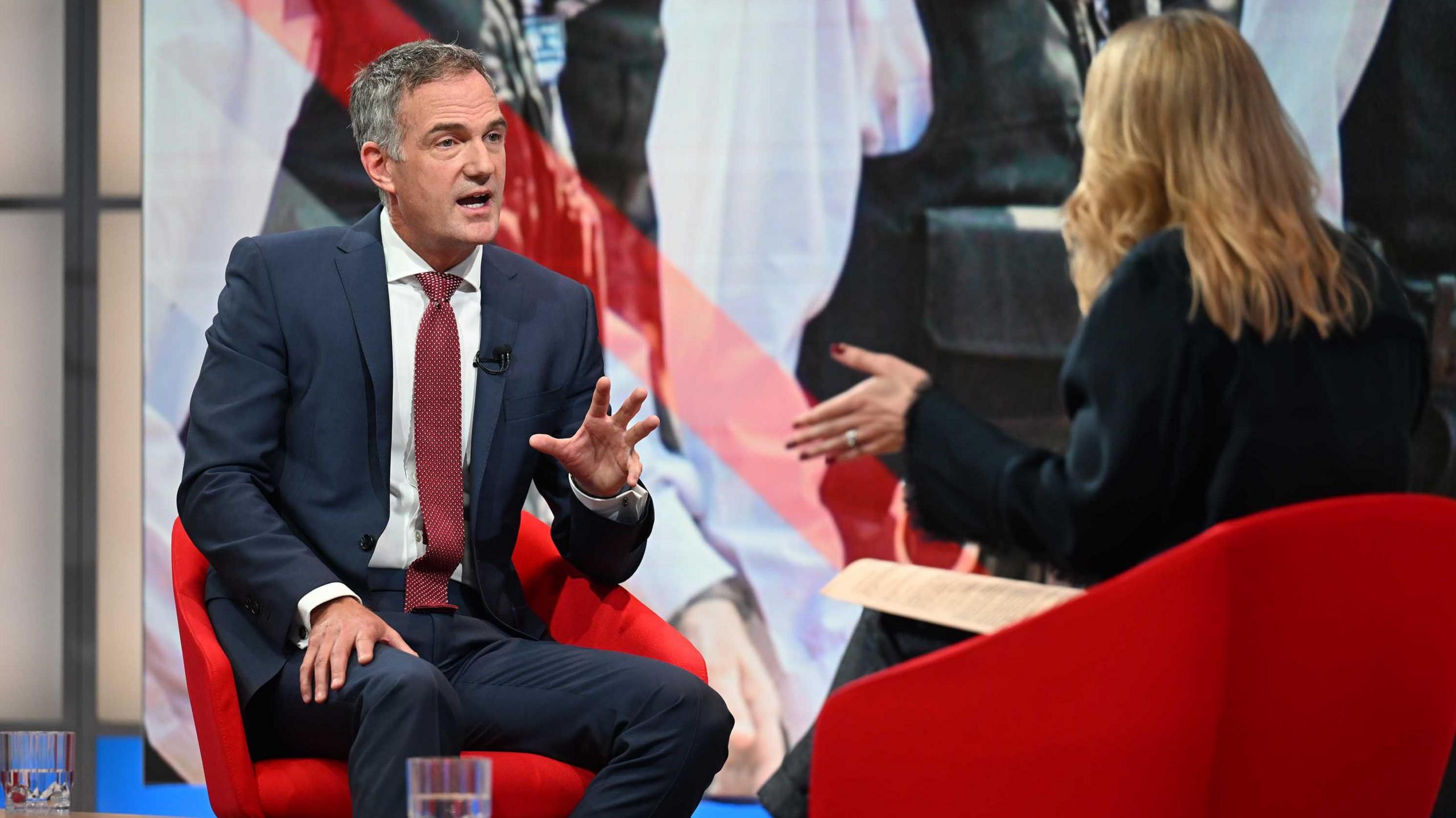
Science and Technology Secretary Peter Kyle told the BBC he would provide the creative industries with rights fit for the digital age
Last month, the science and technology secretary Peter Kyle said he would work with creative industries to develop a sustainable solution following the end of the consultation.
"I am offering to look comprehensively at the challenges creatives have into the future," he said.
"I will give them the rights that they have in the analogue age… fit for the digital age."
The department said it would publish a wide-ranging report, as well as an economic impact assessment.
For the artists in Herefordshire, reform won't mean a thing unless it gives them fair remuneration, they say.
"At the moment the government favours putting the onus on creators to opt out of having their work scraped by AI," said visual artist Rebecca Farkas.
She is currently working to turn sketches and drawings into video animation. It is a time-consuming process.
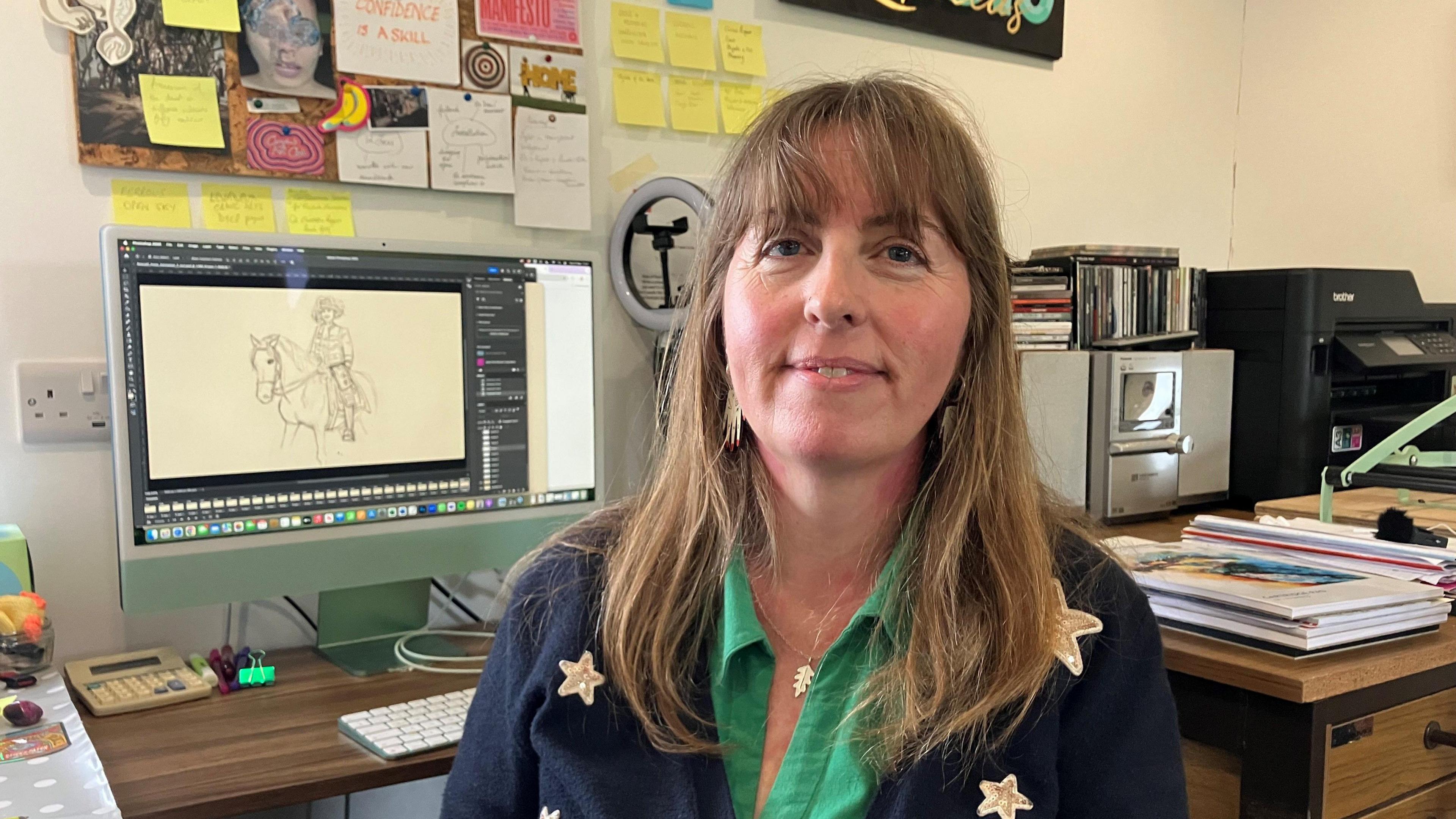
Visual artist and animator Rebecca Farkas uses a combination of hand-drawn sketches and software to create animations.
"AI could look at my animations, and then it could copy it in exactly my style… you could put a prompt in to say 'make an animation like Rebecca Farkas'," she said.
"The creative industries contribute about £126bn to the UK economy each year.
"You're helping one industry by taking away from another industry," she said.
Follow BBC Hereford & Worcester on BBC Sounds, Facebook, external, X, external, and Instagram, external.
- Published19 May
